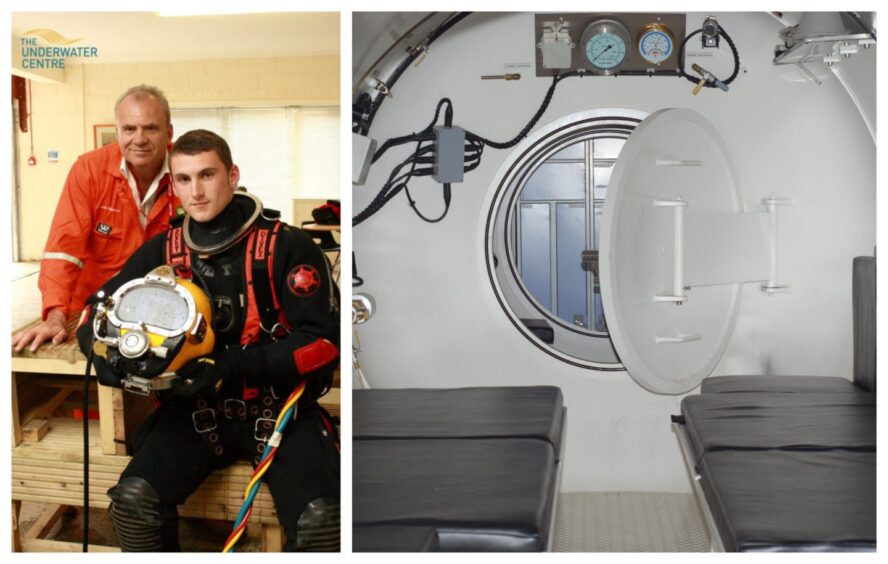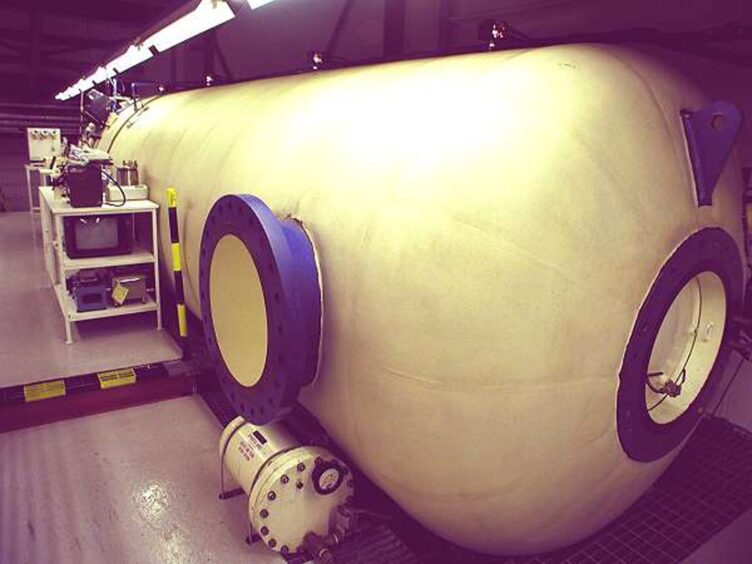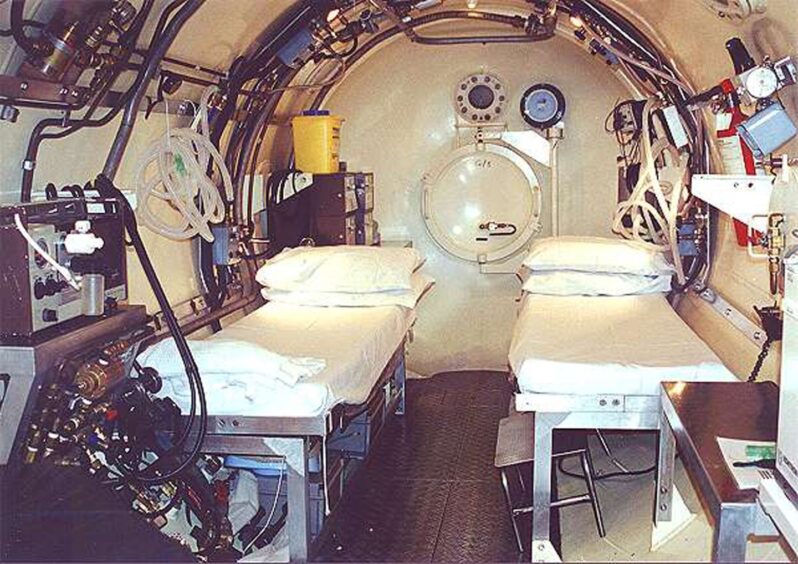
Scottish divers are facing an “unacceptable” six-hour wait for emergency treatment after NHS funding was pulled for a key hyperbaric chamber in Argyll.
Derek Beddows, Neptune Energy’s diving technical authority and former BP global diving boss, said that this move “will cause unacceptable delays”, and force anyone in an emergency to travel 180 miles to Aberdeen.
That delay heightens the risk of long-term damage from issues like decompression sickness.
A petition to save the facility has gained nearly 5,000 signatures amid concerns it will put strain on the Scottish air ambulance service in emergencies.
Mr Beddows, whose son was stricken by decompression sickness in 2018 and was without a nearby chamber for treatment, has said that the lack of NHS support will “impact upon a successful treatment outcome” and will result in a “hazardous” five to six hour waiting times for treatment plans.
He also shared his concern about the availability of transport: “Ambulances are not always available for this journey and a helicopter transfer comes with its own challenges.”
An NHS spokeswoman told Energy Voice: “NHS Grampian is commissioned to run the National Hyperbaric Service for Scotland.
“This comprises the main chamber in Aberdeen and two secondary chambers in Orkney and Oban. The NHS service in Oban has been suspended since January 2024; the NHS contract expired on 31 March 2024 and hasn’t been renewed.”
With offshore wind developments set for the Scottish west coast, the skills of North Sea divers will be utilised to deliver green energy projects.
The only other options for suffering divers will be faced with travelling the width of the country to Aberdeen or heading to Orkney, both of which present a significant journey.
Mr Beddows explained: “Any suspected DCI [decompression illness] requires immediate recompression, pretty difficult when the nearest NHS-supported facility could be up to 6 hours away.”
Risks presented by the 100 mile+ journey
With the health board withdrawing clinical support for the facility that supports divers with a serious illness.
Decompression sickness results in gases getting trapped in a diver’s body tissue as they ascend.
In severe cases, those afflicted can suffer from numbness, tingling, arm or leg weakness, unsteadiness, vertigo, difficulty breathing and chest pain. This presents symptoms similar to that of a stroke.
In December 2018, Lewis Beddows, aged 24, was left medically unfit for work after an air diving incident in Las Palmas, working on the Ocean GreatWhite rig ahead of a UK drilling campaign.
Mr Beddows, son of Derek Beddows, suffered from type two vestibular bends, a build-up of inert gas which affects the brain and nervous system.
The young diver’s supervisor decided not to put Mr Beddows in a recompression chamber, which was the only effective treatment for the injury, a report following the incident found.
An MRI scan found that he was left with 14 visible lesions on his brain and central nervous system, caused by the microbubbles of nitrogen in his bloodstream.
‘Increase in overall cost, whilst also putting lives at risk’
Those who have signed the petition against the NHS pulling funds have shared their opinions, amongst those concerned is a doctor who assesses the fitness of divers.
Sarah Zacheshigriva of Linlithgow wrote: “I am a doctor who assesses divers for fitness to dive. There are hundreds of divers in Scotland, both recreationally and commercially who rely on the service.
“This will affect the safety of people in the waters around Scotland and I believe will have unintended consequences of increasing the workload of the Scottish Air Ambulance to repatriate these divers in emergencies.
“This will cause an increase in overall cost, whilst also putting lives at risk.”
The Scottish diving community has come together to share concerns about how the decision to close the Argyll chamber could impact the safety of those in the region.
“It’s essential to have this facility. People may die as a result of this closure, common sense must prevail and keep it open,” said petition signatory Lesley Roberts.
NHS ‘confident’ Aberdeen can take the extra patients
The Aberdeen hyperbaric chamber treats all Category 1 patients, those who are most seriously unwell, and the chambers in Orkney and Oban have treated those that fall under Category 2.
The NHS explained: “Prior to the suspension of the NHS service in January 2024, the Oban chamber typically saw between 6-8 patients each year.”
Addressing the issue of long travel times between the Oban and Aberdeen sites, an NHS spokeswoman said: “There have always been transfers from west to east for Category 1 patients and we have well established transport links in place to manage this.”
The National Health Service is “confident” it can handle the additional patients. The Aberdeen facility currently sees approximately 10 patients each year.
“A team of 5 is available at any given time to receive a patient requiring emergency treatment,” Energy Voice was told.
The petition against the NHS walking away from the Argyll recompression chamber can be found here.

 © Supplied by NHS Grampian
© Supplied by NHS Grampian
